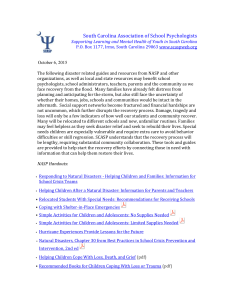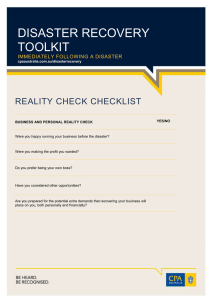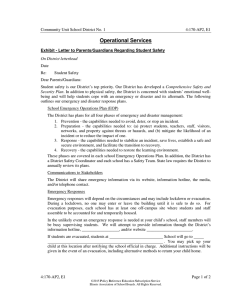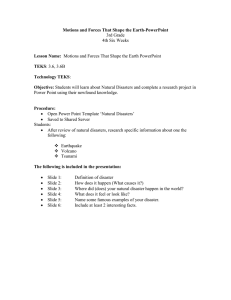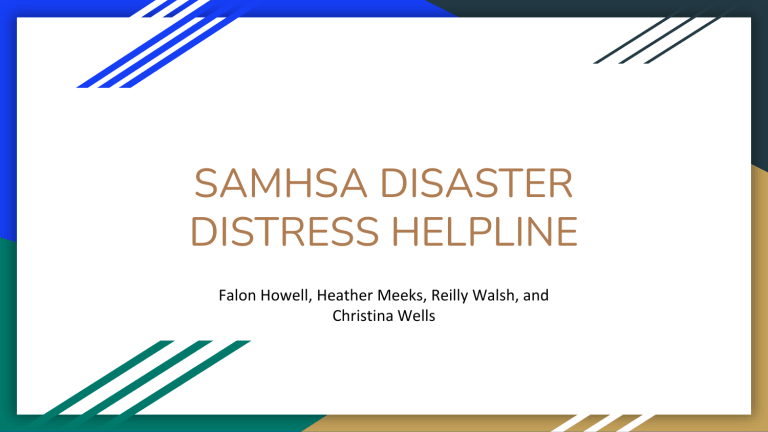
SAMHSA DISASTER DISTRESS HELPLINE Falon Howell, Heather Meeks, Reilly Walsh, and Christina Wells History ● National crisis helpline dedicated to helping individuals that experience a disaster cope with the emotional distress of the event ○ ● Feelings of anxiety, depression, stress, hopelessness, panic, and more can be addressed Founded in 2012, the SAMHSA disaster crisis line provides crisis counseling to people affected by natural or human-made disasters, including but not limited to: ○ Tornadoes, floods, hurricanes, droughts, wildfires, earthquakes ○ Infectious disease outbreaks, such as the Covid-19 pandemic ○ Mass violence events, anniversaries/trigger events, community unrest Provided Services ● 24/7, 365 crisis hotline 1800-985-5990 ● Provide counseling support to people before, during, or after a disaster ● Referrals for local facilities for aftercare and continuing support ● Crisis counseling for those in distress from a natural or man-made disaster ● Teach healthy coping skills ● How to recognize distress and its effect on individuals and families ● Call or text-no personal information is required ● Also available in ASL and Spanish Costs ● This 24/7, 365 days a year hotline offers their services for free. ● Standard text and data message rates will apply when texting from mobile phones. Affected Groups ● The hotline is open to anyone. However, this hotline is mostly used by survivors of disasters, loved ones of victims, first responders, rescue and recovery workers, and caregivers. ○ ○ ○ ○ ○ ○ ○ ○ ○ ● Tornadoes and Severe Storms Hurricanes and Tropical Storms Floods Earthquakes Wildfires Mass violence Drought Anniversaries and Trigger Events Infectious Disease Outbreaks The Disaster Distress Hotline also mentions that you may call on behalf of someone else. Warning Signs for Adults Traumatic Events can have lasting effects on physical and mental well-being Typical signs of distress are: ● Persistent depression and anxiety ● Body aches ● New or increased substance use Other signs include difficulty adjusting to normal life and susceptibility to emotional triggers. Triggers can include sirens, certain kinds of weather, and people’s names. Warning Signs for children and young adults Typical signs of distress include: ● Significant withdrawal from social life ● Increased emotional instability ● Struggles with proper functioning ● Loss of interest in education and/or habits ● High risk behaviors, such as underage drinking and drug use Necessary Training Many employees have higher training and education, such as Bachelor’s and Master’s degrees. Volunteers are often used in Public disaster responses, and SAMHSA draws advice from public members and professionals in the mental health field. All counselors are Trained Crisis counselors. Benefits Proper utilization of this resource will provide emotional support during disasters that can help relieve stress, anxiety, and other depression-like symptoms. This also provides tips for healthy coping and referrals to local crisis call centers for additional follow-up care and support to prevent individuals from spiraling into a mental health crisis.
